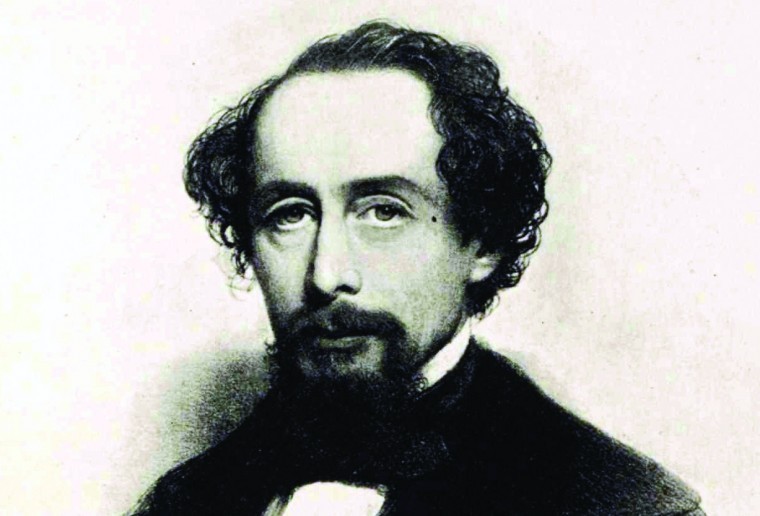Dear readers, I present to you, Mr. Charles Dickens, a man of his time, the time of the Victorians – and also a man of our own modern time. Allow me to have the portentousness to suggest that Mr. Dickens, that titan of Victorian literature, if he were alive today, would find in our age a blend of social commentary and larger-than-life characters to fill a hundred great novels.
It would not only be in the great metropolis of London, the beloved city he knew intimately, where he might find this rich abundance of plot material and a delicious assortment of human follies and frailties to stimulate his imagination. Here in our very own South Valley, that great English author would mine a rich vein of literary gold for his stories.
Forgive me that, in this column, I’ve chosen to take the liberty of an over-the-top Dickensian style as I inform you about the great novelist and my great admiration for him. The choice of wording, you will note, comes from the fact that the world will this year celebrate the bicentenary of Mr. Dickens’ birth – an event considered of not much global significance at the actual time it happened, which occurred in the Portsmouth region of England on Feb. 7, 1812. I fancied that in honor of the bicentenary, I would make in myself a habit of reading a Dickens novel a month.
I’ve started with his masterpiece, “Great Expectations”, a narrative in which an orphan boy named Pip inherits a fortune and grows up to learn a painful lesson about the heartaches and illusions of love.
Unfortunately, the rhythm and rhyme and roll of Dickens’ finely-crafted sentences have a tendency to steal themselves into my mind, hypnotizing me by the profuse musicality in their measures and tempo. I’ve found myself trying, in poor imitation, to mimic that astonishingly lively prose in this column.
You might ask why read an author who has been dead for more than 140 years and wrote about a world that no longer exists. Why read Dickens? Why read Dickens! Good reader, you might as well question why breathe, why eat, why live. To read Dickens – and to immerse yourself in the enchantment of his rich imagination – is to learn lessons about humanity, lessons that will enable you to understand the very essence of what you and all people on our planet are all about.
Dickens was the world’s first literary celebrity, mainly because of his tactic in telling a tale with self-assured honesty. His stories were beloved by the Victorian masses because they spoke a truth – often a painful truth – about the Victorian world in which he emerged as a literary force of nature. His career rode a wave of political, social and scientific revolution, and he mined the drama of his days with high theatrical comedy and tragedy in his novels.
His novel “Hard Times” should be compulsory reading by everyone who earns their living working in the education profession. Its ominous headmaster, Mr. Thomas Gradgrind, was, as Dickens described him, “a man of realities. A man of fact and calculations. A man who proceeds upon the principle that two and two are four, and nothing over.”
Gradgrind might smile approvingly at the No Child Left Behind program in which teachers are encouraged to cram and ram information into students’ heads for the purpose of testing academic ability, grinding grads at the heartbreaking cost of killing the fancy and wonder that young minds naturally possess.
His novel “Bleak House” should be compulsory reading for everyone who earns their living working in the legal profession. An intricately plotted masterpiece, “Bleak House” paints a picture of a sprawling cancer of a court case that destroys the lives of everyone it touches – only profiting the lawyers.
Mr. Dickens speaks to us today. Many Americans in our modern world would benefit greatly by reading the words of the great English author, and from those words develop in their hearts compassion and charity for the less fortunate. Mr. Dickens, if he happened to visit the South Valley two centuries since his birth, would easily recognize here that human nature has not changed one whit since the time of his death in 1870. He would laugh at the hypocrisy of our politicians. He would cry at the widening gulf between the wealthy and the poor in modern America. And he would warn us that our growing fiscal division will damage the fabric of our social morals.
The magnificently marvelous novels of Mr. Dickens are well worth reading – in this year of his bicentenary, or in any other year.










